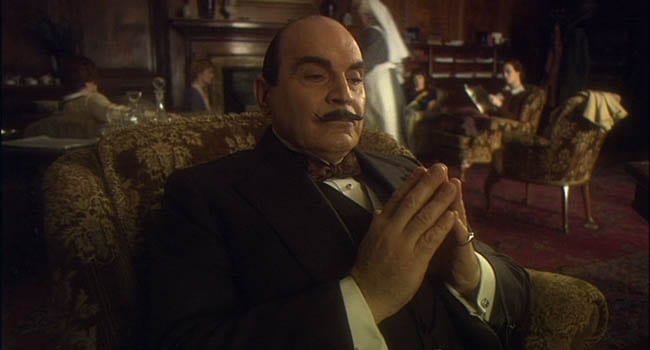 Ah, Christmas!
Ah, Christmas!
There are many things I enjoy doing on Christmas, a wonderful holiday. This includes spending time with family, watching Alastair Sim’s version of Scrooge (1951) and animated specials like A Charlie Brown Christmas (1965), listening to Johann Sebastian Bach’s Christmas Oratorio and reading Charles Dickens’s A Christmas Carol.
With respect to the latter, Agatha Christie will also be on my nice (reading) list.
A talented writer born into a wealthy British family, it took Christie seven attempts to become a published author. She never looked back after achieving this important goal.
Her work has been translated into more than 100 languages and has sold over two billion copies internationally. Her 1939 literary masterpiece, And Then There Were None, remains the world’s bestselling mystery novel – and the play The Mousetrap has run continuously in London’s West End since 1952.
The first Christie novel I read was Hercule Poirot’s Christmas (1938).
It’s an intriguing tale of a murder on Christmas Eve with clues, character development and captivating plot twists. Hercule Poirot, a brilliant, quirky and obsessive-compulsive Belgian detective, is the main character. He likes to use intelligence, human nature and logic to solve mysteries.
He treasures his friends such as Capt. Hastings and Insp. Japp, who help him on his adventures. His appearance and proclivities make him stand out in a crowd, but his reputation proceeds him – and his detective skills are par excellence.
Alas, Poirot’s creator didn’t much care for him. Christie privately described him as “insufferable” and a “detestable, bombastic, tiresome, ego-centric little creep.”
Nevertheless, she realized her legion of readers loved the great detective and it wouldn’t be to her benefit to do something drastic. When he finally died in Curtain: Poirot’s Last Case (1975), he became the first – and only – fictional character to be given a front-page obituary in the New York Times.
This Christmas, I’ll also be watching Agatha Christie’s Poirot and Miss Marple.
I own the entire collection of David Suchet’s superb 24-year run on ITV as Poirot, distributed by RLJ Entertainment/Acorn. Poirot’s The Early Cases Collection (seasons one through six), followed by The Final Cases Collection (seasons seven through 13), is exceptionally done. There’s also a Complete Cases Collection, if you want to binge-watch multiple television specials in one fell swoop.
There’s also an intriguing 60-minute special of Suchet taking the Orient Express, the subject of one of Christie’s most famous Poirot detective novels. You’ll learn a great deal about this impressive journey that continues to this day.
It was the role of a lifetime for the British actor, who was born into a non-religious Jewish household and later converted to Anglicanism. He constructed Poirot’s personality and mannerisms in a way other actors couldn’t quite accomplish and made the character his own. The evolution of his sleuthing style, inquisitiveness, peculiarities and religious faith is fascinating to observe with each passing mystery.
By contrast, Miss Jane Marple was an elderly British spinster who possessed superlative detective skills. She was highly intelligent and perceptive, and a keen observer of human nature and foibles. She also had the uncanny ability to catch little phrases or missteps that most people would gloss over and use them to her advantage.
Most importantly, Christie liked Marple far better than Poirot! She once described her as being similar to “some of my step-grandmother’s Ealing cronies – old ladies whom I have met in so many villages where I have gone to stay as a girl.”
The ITV series starred Geraldine McEwan (seasons one through three) and Julia McKenzie (seasons four through six), which ran from 2004 to 2013. BBC has purchased the rights to future adaptations but nothing has been produced to date.
Marple’s The Complete Collection, also distributed by RLJ/Acorn, is well worth a bit of study and exploration. McEwan was stupendous as Marple, combining Christie’s titular character with her own interpretations as she dealt with honourable figures and evil-doers in each tale.
This doesn’t take anything away from McKenzie’s performance in the role, which was excellent in its own right.
I, for one, can’t wait to get started. Merry Christmas!
Michael Taube, a Troy Media syndicated columnist and Washington Times contributor, was a speechwriter for former prime minister Stephen Harper. He holds a master’s degree in comparative politics from the London School of Economics.
The views, opinions and positions expressed by columnists and contributors are the author’s alone. They do not inherently or expressly reflect the views, opinions and/or positions of our publication.


